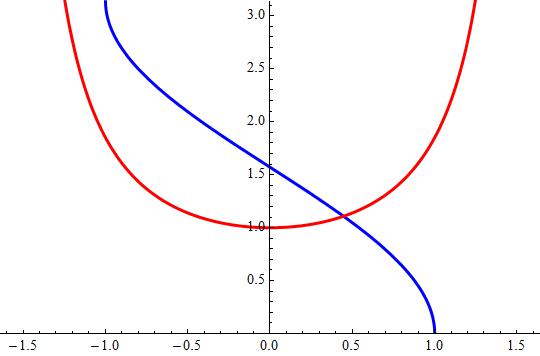Is it true that #cos^(-1) x = 1/cos x# ?
2 Answers
False due to a clash of conventions.
Explanation:
If
#cos^n x = (cos x)^n#
This is a convenience of notation, to avoid having to use parentheses to distinguish, for example:
#(cos x)^2# and#cos (x^2)#
By convention we can write:
#cos^2 x# and#cos x^2#
respectively, without ambiguity.
However, in the case of
graph{y=arccos x [-5.13, 4.87, -1.04, 3.96]}
This is not to be confused with the reciprocal
graph{1/cos x [-10.3, 9.7, -4.9, 5.1]}
Since there is no other convenient notation for the inverse function (apart from the ungainly name
Sorry.
Depends if you consider it as an equation or as an identity.
Explanation:
This affirmation has sense only as an equation.
Iteratively you can find a solution such as
Attached a plot showing




